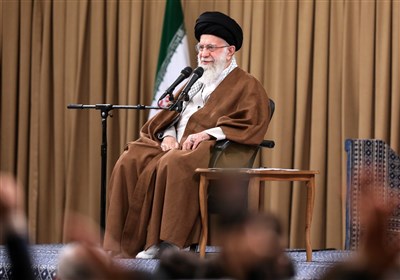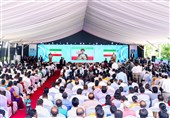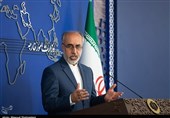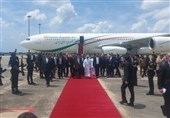US-North Korea Summit Most Likely to Happen despite Hostile Comments: Expert
TEHRAN (Tasnim) – A political analyst based in Washington said that despite "the hostile comments" from US Vice-President Mike Pence and national security adviser John Bolton, who likened North Korea to Libya, the US-North Korea summit is most likely to happen.
"The hostile comments from Bolton and Pence regarding the 'Libya treatment' were clearly intended to undermine the summit, and (North Korean leader) Kim responded appropriately," Michael O. Billington, a senior editor with the Executive Intelligence Review, said in an interview with the Tasnim News Agency.
"But Trump makes his own decisions, and therefore wrote a very kind letter to Kim, which, while calling of the June 12 summit, thanked him for his release of prisoners, for dealing with Pompeo with dignity, and proposed keeping the negotiations going -- and Kim responded positively," he said, adding, "The summit is now most likely going to take place."
Billington is an activist in the LaRouche Movement, Asia editor for the Executive Intelligence Review, and author of Reflections of an American Political Prisoner: the Repression and Promise of the LaRouche Movement.
The following is the full text of the interview:
Tasnim: What do you think about the latest on-and-off developments concerning the US-North Korean talks, and what do you predict will happen next?
Billington: There have been serious mis-perceptions about Trump's relationship with North Korea. Many observers and many governments were warning that Trump might start a war in Asia during the time he and Kim Jong-un were issuing insults to each other, but throughout that period Trump was coordinating every move with Xi Jinping, and also with Putin and, of course, with Moon Jae-in. To some extent the "maximum pressure" had an impact, as did the fact that Kim believed he had achieved a deterrent (a deliverable nuclear weapon) and could negotiate. But the primary reason the current breakthrough has taken place is that all relevant parties have agreed on a peaceful path to peace and development, in the context of the New Silk Road. Kim had a basis to trust the US, on the basis of Trump's serious effort to break the Cold War division of the world into East and West, as the British Empire always demanded.
Tasnim: Can you expand on the impact that Bolton and Pence’s comparison of North Korea’s denuclearization to the so-called “Libyan model” had on the forthcoming Trump-Kim summit?
Billington: The hostile comments from Bolton and Pence regarding the "Libya treatment" were clearly intended to undermine the summit, and Kim responded appropriately. But Trump makes his own decisions, and therefore wrote a very kind letter to Kim, which, while calling of the June 12 summit, thanked him for his release of prisoners, for dealing with Pompeo with dignity, and proposed keeping the negotiations going -- and Kim responded positively. The summit is now most likely going to take place.
Tasnim: How likely is it that North Korea will end up agreeing to its own deal with the US during the forthcoming talks?
Billington: The breakthrough on the Korean Peninsula is but one piece of a truly historic transformation taking place across Asia. The summit of South Korea, China and Japan this month, followed by a summit between Premier Li Keqiang and Abe, put the three Asian powers back on track to cooperation within the scope of the New Silk Road, while Prime Minister Modi has held informal summits in both China and Russia. The "East Vs West" paradigm of Imperial divide is being broken, to the horror of the City of London and Wall Street. It is Trump's support for this process which gives hope for a new paradigm for mankind, for a world based on the common aims of mankind.
It is to be hoped that the model set in Asia, of cooperation of the four great powers of China, Russia, India and the US, can be extended as well to Southwest Asia, where the British still sustain the divisions they created, between Arab and Jew, Sunni and Shiite, as well as territorial issues created by the imperial powers, all aimed at permanent conflict and war, to the benefit of the Empire. Bringing the New Silk Road into Southwest Asia, based on win-win cooperation, is the only basis to end this "cockpit for war."
It is to be hoped that a solution to the Syrian war, with all foreign forces withdrawing and all efforts at regime change ended for good, will provide a basis for an "Asian solution," with all former adversaries coming together for development.






